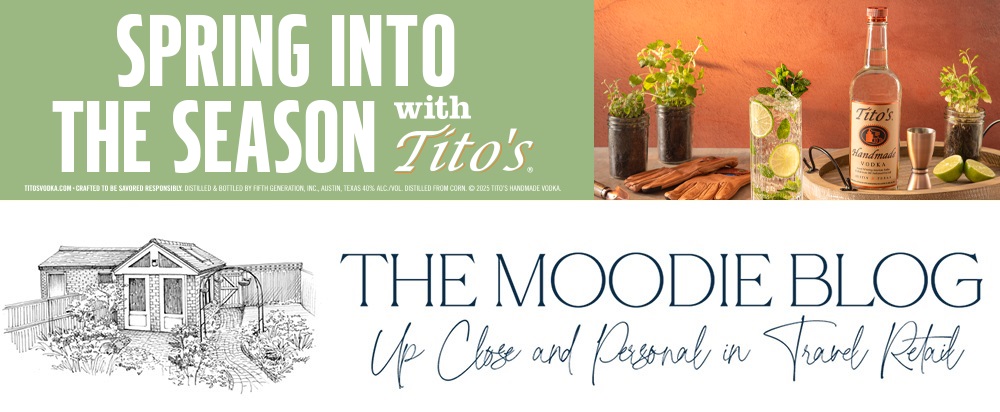Latest posts by Martin Moodie (see all)
- FAB moments in Barcelona, mashie Ps in Ystradgynlais - July 6, 2025
- From a symbol of Ethiopia’s rising to a FAB-ulous foodie experience - June 24, 2025
- Dubai Duty Free dazzles with revamped arrivals duty-free offer - June 19, 2025
When this old world starts getting me down
And people are just too much for me to face
I climb way up to the top of the stairs
And all my cares just drift right into space
On the roof it’s peaceful as can be
And there the world below can’t bother me
– Up on the roof, Gerry Goffin and Carole King
The day is breaking and the view from up on the roof at Moodie Davitt Asia HQ is indeed just as peaceful as can be. The day ahead, as always, won’t be, so I draw a sense of calm from the perfect tranquillity of the dawn’s early light softly caressing the mirror-like waters below. Already, just a few weeks in, this is just about my favourite place on earth.


Peaceful, though, is not a word that we can apply to too many things in the world at present. Although encouraging progress is being made on vaccine roll-outs in many countries (much less so, alas, in others) the pandemic continues to take a dreadful human and commercial toll. The former matters much more, of course, but the economic impact of COVID-19 on individuals and businesses together with the myriad lockdowns has also come at a huge mental health cost to millions.


“So we beat on, boats against the current, borne back ceaselessly into the past.” I often cite the words of Nick Carraway, the narrator in The Great Gatsby, but never have they seemed more apposite than they do at this point in mankind’s history. The line, part of one of the most beautiful passages in the English language, centres on our perennial struggle to achieve our goals no matter how hard we try (‘tomorrow we will run faster, stretch out our arms farther’) expending energy in pursuit of a goal that seems to keep moving away.
In truth, we have no option but to beat on, even when that COVID current seems too strong to overcome. That is why I was pleased to read – and took the trouble to replicate – the words of Dubai Airports’ admirable CEO Paul Griffiths as he unveiled a sombre set of 2020 traffic results (passengers down -70%) this week.
That’s a pretty strong current in anyone’s language but Paul, underlining his credentials as an outstanding leader in crisis as he has always been during the many times of good fortune, took the opportunity to spell out why the days ahead, while not quite the ‘orgastic future’ that Jay Gatsby believed in, offer plenty of cause for optimism.
He even used the word ‘ceaselessly’ – “Recovering the confidence of the travelling public is a major initiative that we must ceaselessly pursue.”
Paul continued with the theme, noting, “It’s incredibly important to regain the confidence of every individual traveller, so they see the combination of the airlines that we serve and the airports that we operate as safe places for people to travel through towards their destinations.”
As he points out, the global pandemic has created a whole different set of expectations from the travelling public. One of them, he argues, is for a “contactless journey”, whereby the passenger can “move effortlessly between terminal and aircraft without having to have any contact with any process at all”. Hopefully that will not include shopping but the point is that by responding proactively to such consumer expectations, the DXB environment is both safer and more convenient.
Paul does not sugar coat prospects but he does hold up the spectre of recovery to 2019 traffic levels (the accompanying release majored on a much-improved Q4 rather than the months that preceded it) at an undefined point in the future. “2021 is clearly going to be a year in which we face more challenges. But whilst we must plan for austerity, we must maintain the hope that prosperity lies ahead. Whilst there are some challenges for the rest of the year we must look forward to a brighter future.”
Note the no-choice, implicit urgency in the repetition of that simple word ‘must’. F. Scott Fitzgerald used the word too in his heart wrenchingly sublime final page of Gatsby – ‘And as I sat there, brooding on the old unknown world, I thought of Gatsby’s wonder when he first picked out the green light at the end of Daisy’s dock. He had come a long way to this blue lawn and his dream must have seemed so close that he could hardly fail to grasp it.’
Paul’s dream, in fact the dream of us all, is simply of that brighter future. It is one we must never give up on, and one that we will grasp. So we beat on, boats against the current.



Dear Martin. Yes my friend we must push on. Keep rowing. Sometimes it gets a bit tiring though as this is becoming a marathon. Keep safe. Chim